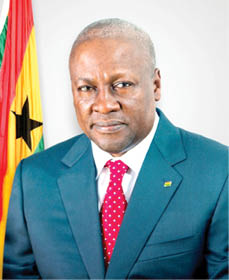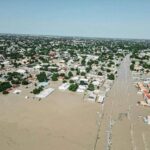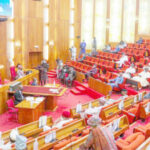Presidential and parliamentary elections were held in Ghana on December 7, 2024. Almost all observation missions and media commentaries suggest that the elections were well contested and conducted in a transparent and peaceful atmosphere, thus making the Ghanian democracy a melody of hope for Africa. Perhaps, it was not by accident that Ghana was the first country in Africa to attain independence in 1957. Consequently, ‘Ghana remains the beacon of democracy and the home of Pan-Africanism’. The outcome of the elections has generated a lot of interests and many people have written to educate the Nigerian public on what lessons we can learn from it. Each commentator has presented a different or in some cases similar perspectives. All for good. Mine is an eye witness account and I will only highlight key issues with a view to generating some thoughts and debate on improving the Nigerian electoral system.
Exemplary features of the Ghanaian elections
Observable features in the Ghanian elections which could be a lesson for many countries, especially in Africa include the following:
This is the 8th in the series of elections in a row: the 2024 elections were the 8th in a row since Ghana returned democratic rule in 1992 with peaceful transition to the opposition party after every eight years, except in 2016. Thus, a unique feature of the Ghanaian democracy is the alternation between the two major political parties, namely, the National Patriotic Party (NPP) and the National Democratic Congress (NDC) after eight years of two terms. This could be one of the reasons the Ghanian example is worthy of emulation for sustaining democracy in Africa. But that is not determined by law. Rather, it is the choice of the people who exercise their rights to vote out none performing government or party. The lesson as stated by the President-elect, John Mahama, is that “Ghanaians are intolerant of a bad government”.
Voter registration: Voter registration was concluded since May 2024 and about 8.7 voters were registered, including 1 million plus new voters. Over 9 million of the registered voters were female, giving a balance in the gender distribution. However, this parity was not reflected in the number of contestants for the 2024 presidential and parliamentary elections.
Thirteen (13) candidates, including one female were on the presidential ballot paper, while about 801 candidates contested for the 276 parliamentary seats from the registered 15 political parties. There were 40,976 polling stations across the country, compared to the 38,622 polling stations in the 2020 elections. The limited number of female actors is not unique to Ghana. Elections today are a function of resources and while we promote gender equality, we must respect the rules of the game.
Main election issues: the economy, illegal mining, free education, and combating corruption characterised the campaigns in this election. Understandably, these are issues that affect most countries in Africa. It is obvious that the ruling party lost because of the poor performance of the economy and the hardships in the land.
Election processes: voting commenced in about 90% of polling stations at 7h00 across the country. Election materials arrived on time, as early as 5h00 in some places. Voters turned out also on time to exercise their franchise. The Electoral Commission of Ghana (ECG) was observably independent. There was regular briefings and consultations with stakeholders, including international observers, thus ensuring transparency and credibility in the process. The citizens, especially voters, were vigilante as well. In addition, the temporary polling booths not only provided sufficient security and confidentiality for voters, but was attractive (both in design and management) to passersby and observers.
Accreditation and voting were done simultaneously and seamlessly. That was time saving for the election officials and voters alike.
Independent candidacy allowed: however, a candidate has to secure two nominations from each of the 276 constituencies to be eligible as an independent candidate in the presidential race.
Early voting/special elections allowed: the Ghanaian electoral law allows persons who would be on essential duties (including police, drivers, media personnel) on election day to register and vote earlier than the scheduled national elections. Section 21 (1) of the Presidential/Parliamentary Elections Law (1996) states that:
A voter who because of his duties on polling day will be unable to be present at the polling station where he is registered, may apply to the returning officer of the constituency in which he is registered to be entered as a special voter.
For this year, the special voting was conducted on 2 and 5 December 2024 in designated stations.
Voting by proxy allowed: for the sick, persons outside the country, or just unable to vote. Section 23 (1) of the Elections Law (1996) states that:
A registered voter who, because of ill-health or absence from his constituency, will be unable to present himself to vote on polling day may, not less than fourteen days before the poll in the constituency where he is registered, apply to the returning officer of the constituency where he is registered or to any representative of the Commission for his name to be entered on the proxy list
In general, it was observed that the legal framework for the conduct of elections in Ghana largely guarantees the fundamental rights and freedoms for citizens to exercise their rights to choose leaders of their choice without let or hinderance.
The use of verification machines for accreditation and transmission of results: although this is not peculiar to Ghana, its efficient use and acceptability has given considerable credibility to the electoral process. That is not to say, however, that the elections were full-proof accurate. Indeed, every system has its strengths and weaknesses.
With regard to security, the Election Security Task Force, headed by the Inspector General of Police was well coordinated. The military was not involved in the election. The law provides that the military can only be involved when invited by the Inspector General of Police. In most of the polling stations, only one and in some cases not more than two unarmed police personnel were deployed to each polling station.
Another feature of the elections was the free movements allowed during elections. The election time from 7am-5pm was adequate for all voters to cast their votes and voters who were already at the polling station at the time of closing of votes were allowed to exercise their civil rights. The counting was transparent and orderly, as well as the transmission of results to collation centres in most of the places observed within Accra city.
The names, photos and party logos of candidates displayed were displayed on ballot paper, thus making identification easier. Section 12 (1) of the law provides that:
Where an election is contested, the Commission shall, as soon as practicable after the nomination day –
(a) allocate to each candidate the symbol f his party in the case of a candidate sponsored by a registered political party; or
(b) allocate to a candidate who is not sponsored by a political party a symbol or colour chosen by him; or
(c) in any other case, allocate such symbols or colours as the Commission considers appropriate.
Here, there are significant lessons to learn, especially by Nigeria, being the leading country in West Africa. The time is now for the National Assembly to consider some of the good practices in other jurisdictions and improve on the Electoral Act, in particular with regard to the use of technology to collate and transmit results, consider special voting rights for persons who will be on essential duties on election days, as well as diaspora voting.
Voters’ turnout was relatively low at about 58 per cent compared to 70-80 per cent in previous elections. It was speculated that while some supporters of the losing parties concluded that voting would not change the outcome of the elections, others simply disenfranchised themselves because of the performance of the leading parties in government.
Conceding defeat: a final lesson learned was the rare demonstration of a democratic culture by the Vice President and candidate of the ruling party (the NPP), Dr. Mahamadu Bawumia, who as early as 9h30 on the following day, and before the conclusion of counting and announcement of the results of the presidential election, called his elder brother, former President and candidate of the main opposition party (the NDC), John Dramani Mahama and congratulated him. He went further to announce his concession of defeat in an address to the media. This is an important lesson for Africa.
In conclusion, a good election is made possible by the people. Suffice it to say that whereas the electoral system appears to be good on account of what transpired during the 2024 elections, that does not mean there are no problems and challenges. No country ever has adequate resources, but the critical factors in having transparent, fair, credible and acceptable elections include sufficient legal framework, independence of the electoral body, availability and efficient management of resources both for the electoral body, as well as for contestants. The enthusiasm and commitment of the citizenry to the democratic process is also crucial. In addition, the patriotism of the citizens and their enthusiasm to exercise their civic responsibilities in a law-abiding manner and with decorum, all contribute to the success of elections. In the case of Ghana, significant progress has been made consolidating and strengthening democracy, yet, there is room for improvement.
Amb. Prof. Abdullahi Shehu, immediate past Nigerian Ambassador to the Russian Federation contributed this piece from Accra

 Join Daily Trust WhatsApp Community For Quick Access To News and Happenings Around You.
Join Daily Trust WhatsApp Community For Quick Access To News and Happenings Around You.


